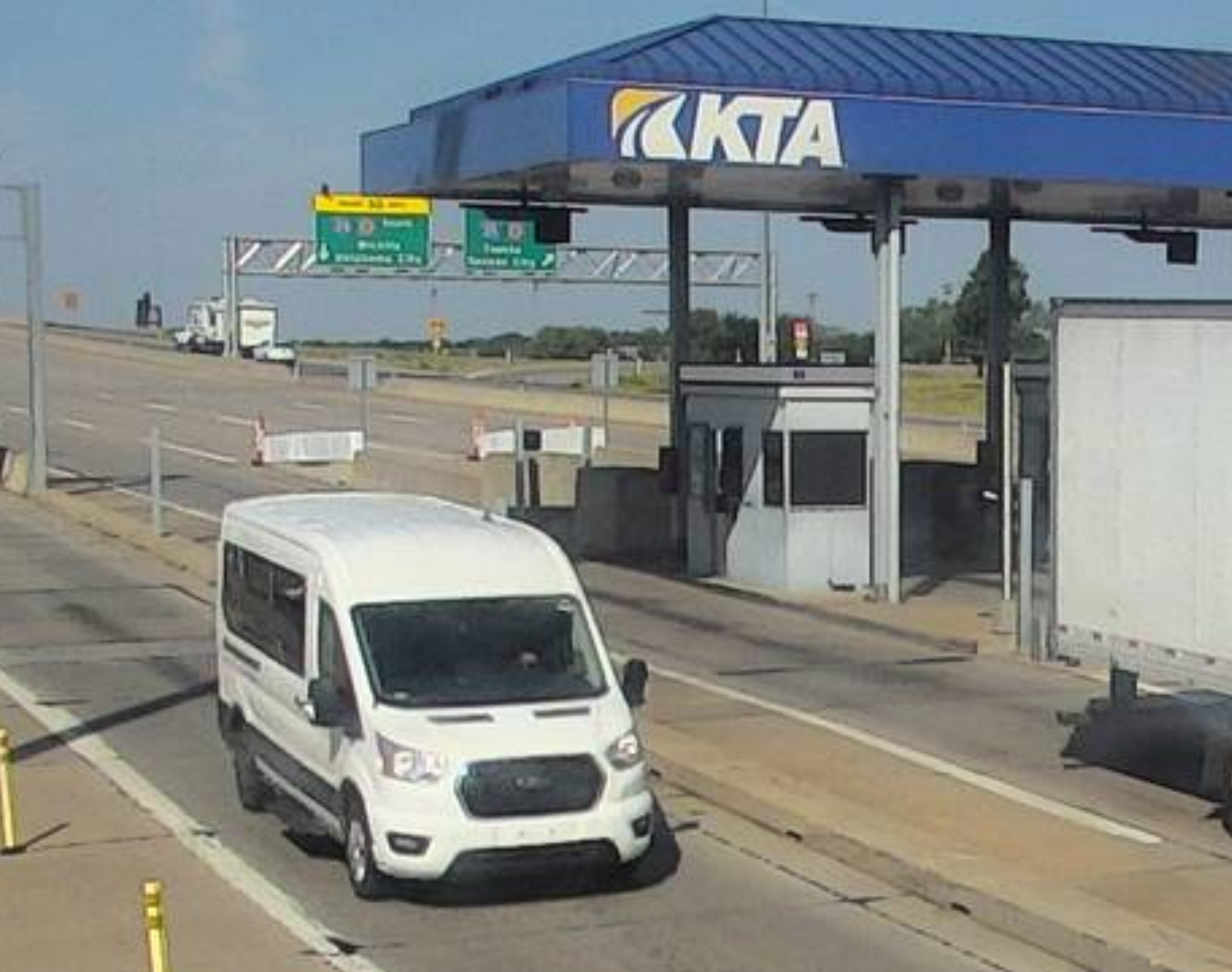
By MIKE COURSON Great Bend Post
In the early 1950s, toll roads became a way for developers to build large superhighways that predated the current interstate road system. Ground was broken on the Kansas Turnpike on the final day of 1954, and the highway was completed 22 months later. Since 1956, drivers have had to stop and pay tolls on the road. That will no longer be the case as of July 1 when the Kansas Turnpike Authority (KTA) moves to a cashless system. KTA CEO Steve Hewitt joined the company nearly 10 years ago with plans to make improvements.
"As we got more into customer feedback, we realized our customers want a more efficient, easier way to travel," he said. "Our K-TAG customers used to be about 35 percent of our customers. Now, they're 70 percent. So 70 percent of our customers want this free flow of movement."
Previously, only drivers with a K-TAG could move across the turnpike without stopping at a toll booth. After July 1, all vehicles passing on the turnpike will keep moving. Those without a K-TAG will be billed based on the license plate information on the vehicle. Hewitt said K-TAGS will still be beneficial to drivers and the KTA.
"Of the folks who don't have a K-TAG, it's more expensive because we have to look you up, find you, send you a bill, wait for you to send us the money back," he said. "So we incentivize folks to get a K-TAG because you tie a payment to your K-TAG and we just ding your card or bank account when you use the turnpike."
Drivers in vehicles with two to four axles can save 35 percent on tolls by using a K-TAG. A credit card or bank account can be attached to a K-TAG account for hands-free payment for using the turnpike. K-TAGs also work on roads in Oklahoma, Texas, and Florida.
Kansas is hardly the first state to try cashless tolling. At least six states, including Colorado, California, and Texas, have versions of cashless tolling. Hewitt said KTA's new cashless system is a byproduct of what those other states have done.
"It was pretty daunting for our IT folks, but we brought partners in to make sure we did it right," he said. "We're not reinventing the wheel because other states and turnpikes across the country have been doing this for a while. We're learning from those lessons where they've struggled but also the success stories. We're putting it together, and we feel like we have a pretty good system to roll out."
No system is perfect. Under the current system, registration information is collected from vehicles that do not have a K-TAG but avoid toll booths. Hewitt knows a small number of drivers will continue to try and manipulate the system.
"That is the small risk to us, but the long-term success and improvements are going to be really good for our system despite chasing a few folks," he said. "We know we're going to have one or two percent of our people that are going to find ways to escape the tolls, not pay the tolls, change their information, try to hide their license plate - it happens in every state. It's not going to affect our business from the standpoint that 98 percent do the right thing. They pay, they pay on time, and they're good partners.
"There will be some we have to write off. That's the reality of it. But that shouldn't stop us from doing the right thing of making it safer and more convenient for the 98 percent of our good customers."
Hewitt said approximately $100 million will go into the project to convert the 236-mile turnpike into a cashless system. With the K-TAG rates, the Kansas Turnpike will offer the lowest rates of any cashless system across the country.
CLICK HERE to learn more or sign up for a K-TAG.






